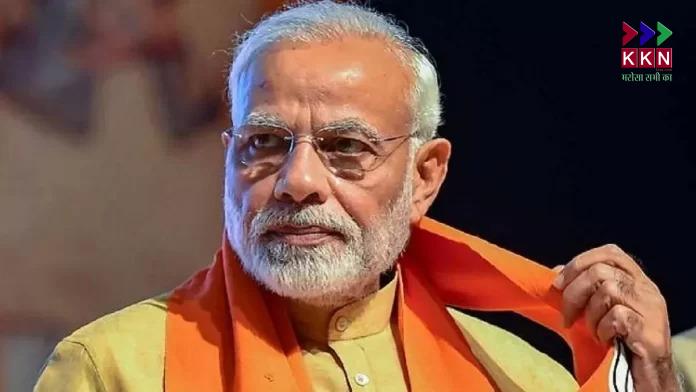
Former Rajya Sabha MP and Sikh affairs expert Tarlochan Singh has made a significant statement on the 2002 Gujarat riots. In his remarks, he praised the role of Narendra Modi, who was the Chief Minister of Gujarat at the time. According to Singh, the riots were triggered by the outrage following the Sabarmati Express incident, and Modi displayed courage in managing the situation, preventing further escalation across the state.
Sabarmati Express Incident and the Aftermath
The 2002 Gujarat riots were sparked after the burning of the Sabarmati Express train, in which several passengers were killed. Tarlochan Singh explained that the relatives of those killed in the incident wanted to take the bodies back to their respective villages. However, Modi made the decision to conduct the last rites locally. Singh argued that this prevented anger from spreading across the villages, which could have led to widespread violence throughout Gujarat.
He stated, “If those bodies had reached their villages, the anger among people would have intensified to unimaginable levels. Gujarat would have been engulfed in flames. Narendra Modi showed courage by ensuring the cremations were conducted there itself.”
Riots Were Public Anger, Not Government Sponsored
Tarlochan Singh emphasized that the 2002 Gujarat riots were an outcome of public anger rather than government conspiracy. Drawing a comparison with the 1984 anti-Sikh riots in Delhi, he said the Gujarat violence was not state-sponsored.
“At that time, I was the Chairman of the National Minority Commission. After investigating the incident, I concluded that the riots were the result of public outrage, not government orchestration. There was no involvement of the government or any of its officials,” he explained.
Personal Involvement in Investigations
Singh recalled that he was among the first people to arrive at the site following the incident. He said he questioned locals about the events but found that nobody had a clear idea of what exactly had transpired in the beginning. Having been appointed as Chairman of the Minority Commission in 2000, Singh later documented his findings in a booklet on the Gujarat riots.
Interestingly, he revealed that Narendra Modi himself had distributed 500 copies of this booklet. The booklet compared the Gujarat riots with the 1984 Delhi riots, concluding that while Delhi’s riots were sponsored by the government, Gujarat’s violence was spontaneous and rooted in public anger.
Modi’s Decision Limited the Violence
Singh stressed that Narendra Modi’s decision regarding the cremation of the victims was crucial in controlling the situation. He said, “As Chief Minister, Modi ensured that all the victims were cremated locally. Had the bodies been sent to their villages, the collective outrage would have ignited unrest across the state. This courageous decision contained the violence within Ahmedabad and nearby regions, preventing Gujarat from burning entirely.”
Broader Implications of Singh’s Statement
The remarks from Tarlochan Singh hold political weight as the 2002 riots continue to remain a contentious issue in Indian politics. For years, opposition parties, particularly the Congress, have accused Modi of failing to control the riots. Singh’s statement, however, presents a different perspective, framing Modi’s role as decisive and effective in containing the violence.
By comparing the Gujarat riots with the Delhi 1984 riots, Singh indirectly shifted the narrative, suggesting that unlike Delhi’s government-backed violence, Gujarat’s tragedy was spontaneous. His comments could reignite debates around historical accountability and the contrasting roles of political leaders during communal unrest.
Tarlochan Singh’s assertion casts Narendra Modi’s role during the 2002 Gujarat riots in a positive light, crediting him with making tough decisions that prevented the violence from engulfing the entire state. By highlighting the cremation decision and dismissing allegations of government involvement, Singh has reshaped the discourse surrounding one of India’s most debated incidents.
While differing political viewpoints will continue to clash over the legacy of the 2002 riots, Singh’s statement emphasizes the importance of leadership decisions in times of crisis. His perspective underlines Modi’s courage and responsibility during a period of intense communal tension, suggesting that Gujarat was spared further devastation because of his intervention.